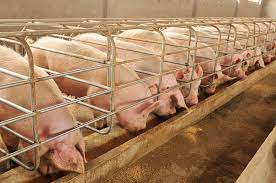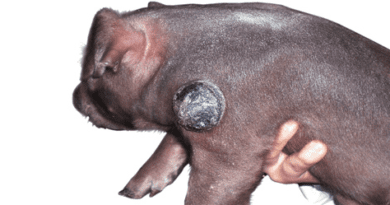The Potentials and Constraints to Pig Production in Developing Countries
The world trend is towards the consumption of more white than red meat. Thus the potential for increased meat production from pigs in the developing world is enormous. When compared with cattle and other ruminants, pigs have some major potential advantages, namely:
• They produce meat without contributing to the deterioration of the natural grazing lands. This is of paramount importance in relation to the current steady desertification, soil erosion and loss of productive land in tropical and sub-tropical parts of the world.
Overstocking and consequent overgrazing by ruminant is a primary cause of this degradation.
• They covert concentrate feed on meat twice as efficiently as ruminants.
Read Also: Feeding and Grazing Behaviour of Goats
• They possess the potential to be highly productive. Because they are capable of producing large litters after a relatively short gestation period, and have a short generation interval and grow rapidly, their output in terms of yield of meat per tonne of live weight of breeding females per year is in the region of six times that of cattle.
• If confined maximum use can be made of their manure and effluent.
• Their relatively small size, when compared with cattle, provides for more flexibility in marketing and consumption.
• The meat pigs produce is particularly suitable for processing: some of the processed products have a longer shelf life than fresh meat, and can thus be distributed to a wider section of the population.
• Quicker turn-over rate to investment compared with cattle. Apart from the social and religious constraints mentioned, other constraints to pig production are:
• As simple-stomached animals, they compete directly with humans for feed, especially the staple grains and oilseeds. This can be partly overcome by making maximum use of crop by-product, waste feeds and grain unsuitable for human consumption.
• They cannot provide a source of draught power for farming operations.
• Since they tend to be raised close to human habitation, their effluent may cause a pollution problem
• Because pigs and man are co-hosts to a number of parasites, if pigs are not confined they can pose a problem to human health.
Read Also: Principles of Pig Production for Optimum Performance









